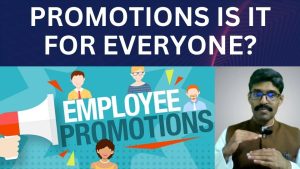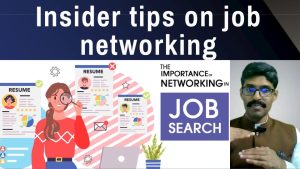The Insider Guide to Careers
Insider information, secrets and tips about getting hired and building careers. For employees and job candidates.
This is how we think that compensation increases over time.
The truth is that compensation increases disproportionately over time; the shape is more exponential than a straight line. From the level of directors, management finds many sneaky ways to jack up compensation for themselves. In my last job, I was offered a huge stock grant, which was not even in my offer letter.
When I left my last job in the Bay Area, I was making 150 times the first salary I got working in India. I had another offer as a senior director in San Francisco, which would have paid me 60% more than I was making, but I had enough. I already had enough to take care of my simple and frugal lifestyle for the future. More salary meant nothing to me. Not everyone is in a place where expenses are under control.
Here are two tips to help you plan for the future. These tips apply to everyone, whether you are early or mid-career.
Tip 1: Working every year from when you graduate to when you retire is not a wise strategy. Working for 43 years without taking time to upskill and learn new skills is an illusion. A career is a marathon and not a 100-metre sprint. You have to take pitstops and breaks. When the world of 1981 or 1991 is nothing similar to 2024, how can the workplaces be any different? Once you take your ego out of the discussion and look dispassionately at the labour market, it is easy to understand that nobody can work for decades without a break. Job security may have worked for our parents, but it will not work for this generation. With accelerating technology change, disruptions and layoffs will become very common.
What should someone do in this scenario? I recommend that people start their businesses and become entrepreneurs sometime in their careers. Yes, one needs enormous patience and luck to do well, but contrast that with the patience and luck you will need in any office job. Both roles are similar. The only difference is that you can capture 100 % of the profits you generate versus working for someone who captured a majority of the profits for themselves. Entrepreneurship does not mean creating a billion-dollar business. This expectation of runaway success is a big problem with Angel investing and VC funding. They will not fund anything that does not become a unicorn. Most employees would be happy working in their own business, which can replace their income, which generally does not exceed 500,000 dollars in most cases. Niche opportunities always exist, and no VC will fund them. You have to do all the hard work yourself. The advantage is that you have to answer to none, not even a VC.
The US, especially the Bay Area, is not a good place to strike off on your own. It is terribly expensive, especially when you pay skyrocketing rentals and do not have employer health insurance. A better place is India. India has its share of issues, but everything is a small fraction of the costs in the US. Your savings magically grow at least 5 to 20 times if you come to a tier 1 city or tier 3 Indian city, respectively.
Tip 2: I saved more in my last two years of work than all the money I had saved in my life. I did a back-of-the-envelope statistical modelling before I left my job. I could have skipped all my working life taking rest during that time and instead just worked two years. I am partially kidding. Of course, to reach that last two years of work, all the previous work experience was necessary. This trend will only continue. Whether in the US or India, compensation grows dramatically with age. The most critical factor in predicting promotions is age. If you have the capacity to keep rising, you will make more in your fifties than all your previous decades put together. Assume you are a manager making 200,000 dollars. Instead of working 20 years to make 4 million dollars, you can make that much by making 4 million dollars in your 21st year. Of course, to reach a highly compensated executive position, you need to be at the top of the game. You need to be knowledgeable, enthusiastic and motivated. However, long years at work, especially in junior positions, ensure that you are jaded, lacklustre and barely surviving at work. For high performers, the pressure and expectations only increase exponentially once you get promoted. Nobody can be at the top of their game for multiple decades. That superhuman expectation will break most humans. These people need a break to recharge or reinvent. But few have the courage to make such a bold step.
Pick up skills in communication. Soft skills are extremely important. Become more fluent and get involved in non-profits where you can get a chance to work with large teams and influence people without authority. Keep learning something new every day. Look deep within yourself to identify your true passions. Do assessments to check your skills and strengths. I have designed some free assessments which are not yet on our website. Connect with me to take those online assessments and reflect on your skills. I did a similar evaluation on the first day of my MBA program. Knowing what careers to pursue and what not to is my biggest takeaway from the MBA program. If you have a passion but no expertise, spend some time learning a bit every day. You will be surprised at how much change one makes in a short time. You will always create time to do things you love and be the best in the field within a few years. As we get older, our thinking becomes like a frog in boiling water. We slowly lose the enthusiasm and initiative to make any changes in our lives. Even a high schooler has an enthusiasm that is magnitudes higher than that of a mid-career executive. They enter college not knowing anything, and within four years, they become expert in their specialization. Everybody is just 4-5 years away from mastering any subject. The trick is to leave aside the ego and regain the learning agility one had as an undergrad. I know a professor who, late in her career, left a Vice President job at HP to join the PhD program at Harvard Business School. She is now an organizational behaviour faculty member at another business school in Boston. She is probably making less than her earlier salary at HP, but I am sure it is more satisfying.
Let me conclude by saying that sometimes stepping back and looking closely at how compensation works is the best gift you can give yourself. It will help you develop a long-term career strategy rather than be a passive recipient of monthly paychecks. No company or manager can help you own your career. You own your career.



